- Home
- James Swain
Midnight Rambler jc-1 Page 19
Midnight Rambler jc-1 Read online
Page 19
Dressed in black, Lorna Sue Mutter stood beside him. She was content to bask in Snook's oratory and looked at him in a way that only confirmed my earlier suspicions about them sleeping together. I raised the volume with the remote.
“Today, my client, Simon Skell, was exonerated of the charge of murder in the first degree,” Snook said into the reporters' bouquet of microphones. “Justice has been served.”
“Will your client be suing the police for false imprisonment?” a reporter asked.
“No comment,” Snook said.
“How about Detective Jack Carpenter? Will your client sue him?”
“No, he will not,” Snook said.
Of course he wasn't suing me. I didn't have any money.
“When will Simon Skell be released from prison?” another reporter asked.
“The orders for my client's release have been sent to the warden at Starke,” Snook replied. “Hopefully, he will act swiftly.”
“Will Skell be released today?”
Snook frowned. The warden at Starke was a hard-ass named Einbinder. Einbinder knew all about Skell, courtesy of yours truly. My guess was Einbinder would delay Skell's release and give the police extra time to find evidence against him.
“That's out of my hands,” Snook said.
A reporter shoved a mike into Lorna Sue's face.
“Have you spoken to your husband recently?” he asked.
Lorna Sue beamed beatifically. “Why yes, I spoke with Simon earlier. He asked me to personally thank everyone who's been praying for him. He looks forward to being a free man very soon.”
My sandal hit the screen. Luckily it stayed intact, and I saw something that I hadn't seen before. Standing behind Lorna Sue was a man wearing stylish tinted glasses and a diamond stud earring. His name was Chase Winters, and he was a Hollywood producer of some repute. I knew Chase because I had nearly sold him my life story when I was desperate for cash. I'd thought he was a straight shooter until he told me over lunch that he needed to take “artistic license” with the facts of the case. When I asked what that meant, Winters explained that he wanted to turn all of the Midnight Rambler's victims into strippers because it would help sell the movie overseas. Instead of punching his lights out, I walked away from the deal. Seeing him with Lorna Sue, I assumed he'd found someone more willing to bend the truth to his liking.
I killed the TV. Then I called Disney's main number and asked for Tram Dockery's room. To my relief, Tram picked up.
“This is Jack,” I said.
“Hey, Jack,” Tram said brightly. “How's it going?”
“Not so good. You and I need to talk.”
The Dockerys were staying at Disney's Wilderness Lodge. The lodge was situated on several heavily wooded acres, the roads unmarked and poorly lit. I pulled in twenty minutes later and let Buster sniff trees before entering the main building.
Wilderness Lodge was Jessie's favorite hotel growing up, and our family had stayed there many times on vacation. Modeled after the Old Faithful Inn at Yellowstone National Park, the main building was the world's largest man-made log structure, with each massive log fitted in place without the use of glue or nails. A woman in cowboy attire greeted me at the front desk.
“Howdy,” she said.
“House phones,” I said.
She pointed to a stand by the elevators, then handed me a brochure.
“Have a nice evening,” she said.
I called Tram's room and asked him to meet me in the lobby. He sounded worried and said he'd be right down.
I made myself comfortable on a sprawling leather couch and leafed through the brochure the receptionist had given me. It was called the Hidden Mickey Hunt and was a special promotion for guests staying at the Lodge. Eight hidden images of Mickey Mouse were carved into the balconies of different rooms, while another eight were hidden around the property in the landscaping. Every guest who found all sixteen won a special prize. I thought of Shannon Dockery and wondered how many she'd found so far.
“Hey,” a voice said.
I rose from the couch. Tram had come out of an elevator and was walking toward me. He wore a clean plaid shirt and had a fresh part in his hair. I didn't believe in beating around the bush, so I showed him the photographs from Cecil's room. He gasped.
“Who took these?” Tram asked.
“That was what I was hoping you'd tell me,” I said.
He studied the photographs, then shook his head.
“I don't know,” he said.
“Did you notice any cars following you this morning?” I asked.
“Not that I remember.”
“Before you left the lodge, did someone talk to you in the lobby, or maybe outside when you got your truck? Someone suspicious?”
Tram's eyes were burning a hole in the photographs, and I sensed he was having a hard time remembering. Scaring the living daylights out of people worked wonders on their memory. I led him over to the crackling fireplace in the room's center and put my hand on his shoulder.
“I'd like nothing better than to throw these photographs in the fire, but that won't change things,” I said.
“What do you mean?” he asked.
“The police have a copy. They're going to want to talk to you.”
“Shiiit.” He drew the word out as if he was sliding in it. “So my wife's going to find out I was drinking with my daughter in my pickup.”
“Yup.”
“Oh, man, I'm screwed.”
Everyone hates the bearer of bad news, and Tram shot me a mean stare. I felt bad for him. There was no greater shame than letting your kid down.
“I've got an idea,” I said.
His eyes turned hopeful.
“Tell your wife you only drank one of the beers,” I suggested. “Then you realized you were making a mistake, and tossed the rest out.”
Tram gave it some thought.
“Yeah, that will work,” he said.
“But you still need to be apologetic.”
“And admit I was wrong.”
“Yes.”
He studied the photographs some more.
“Where did you find these?” he asked.
“In the motel room of the man who snatched Shannon,” I said. “Someone sent them to him on his computer, along with a lot of information about you and your wife and daughter.”
“How the heck could someone know all that?”
“That's what I want to find out. I want you to reconstruct what you did this morning, from the moment you took your daughter out in your pickup.”
The fire's flames illuminated Tram's face as he tried to reconstruct his morning.
“I took Shannon to McDonald's, bought a six-pack of beer, drove around for a while, then came back here and picked up Peggy Sue. No, wait. I bought the six-pack first, then went to McD's.”
He lifted the photograph, counting the beers left in the six-pack.
“Heck. I know where this was taken,” he said.
“You do?”
“Yessir. On the drive-through at McD's.”
“Are you sure?”
“Uh-huh. You know the expression ‘Your first beer is your best beer’? Well, my first beer this morning was sitting on line at McD's drive-through, waiting for my grub. I placed my order, popped a brewski, and got a buzz on.”
Tram impressed me as a guy who would remember something like this, and I stared deeply into the fire. Julie and Carmella Lopez had gone to a McDonald's restaurant in Fort Lauderdale the morning that Carmella disappeared. I'd found another link.
“They must've been listening to me inside the restaurant,” Tram went on. “I called my sister on my cell and told her what we were doing today.”
“You think someone inside the restaurant was listening through the order box,” I said.
“Yessir,” Tram said. “I bet they photographed me through that thing, and listened to me as well. That must be how they knew all that stuff.”
I continued to stare into the flames.
There was something wrong with Tram's explanation. I'd seen the order stations inside McDonald's restaurants, and they were right by the kitchens. An employee couldn't spy on cars in the drive-through without other employees noticing. I was still missing a piece of my puzzle, but I suspected that a trip to the local McDonald's would answer my questions.
“Thanks. You've been really helpful,” I said.
“No problem,” Tram said.
I handed him the brochure. “Does your daughter know about this?”
“Heck, yeah. She found them all. Bet you didn't see the one in front of us.”
I shook my head, and Tram pointed at the protective metal screen covering the fireplace. A hidden silhouette of Mickey Mouse was carved into it. Mickey was waving to us, and I found myself nodding. If I'd learned anything as a cop, it was that you had to search for the good and bad in this world. It was all out there, if you knew where to look.
CHAPTER THIRTY-TWO
Tram walked me to the lodge's entrance. I asked him the location of the McDonald's where he'd bought breakfast, and he said it was in Kissimmee. When he described the landmarks, I realized it was a stone's throw from Sleep amp; Save. I started to leave.
“I need to ask you something,” Tram said.
I stopped in the doorway and waited for him to finish.
“I never got your last name,” he said. “Folks back home in Douglas are gonna want to know who you are when I tell them this story.”
The idea that this kid was going to be telling stories about me made me smile.
“It's Carpenter,” I said.
“That works.”
I hesitated, unsure of what he meant.
“Carpenters fix things,” he said.
I smiled at him. I'd come to the conclusion that he wasn't a criminal, just a young guy prone to making dumb decisions, and I hoped that this experience had taught him a lesson. Then I went outside.
A wet kiss on my wrist turned my head to the sky. Another storm had rolled in, and I reached my car just as the downpour began. Buster sat on the passenger seat, looking ready to call it a day.
I found the weather on the radio. A storm front was parked in the Gulf, and heavy rain was predicted for several days. It was the price you paid for living in the tropics. I left Disney unable to see twenty feet in front of my car.
Pulling into the Kissimmee McDonald's twenty minutes later, I was shocked to see it closing for the night. I entered to find a black kid wearing a hairnet mopping the floors. He shot me an annoyed look, and I stood on the mat with water dripping off my hair.
“We're closed,” the kid said.
“The sign says ‘Open 24 hours.’”
“I have to mop up,” he explained. “Don't want customers coming in and slipping on the wet floor. Then we'll get sued.”
“When will you reopen?”
“Once the night manager gets here.”
“When will that be?”
The kid smirked, leaving me to believe the night manager would show up whenever he pleased.
“I need your help,” I said.
The kid rested his chin on the end of his mop and gazed at me reflectively. He looked seventeen but had the eyes of a much older man. His name tag said Jerome.
“What's this about?” Jerome asked.
“I need to ask you a couple of questions. I'm doing some work for Disney. It's concerning a little girl who was abducted in the Magic Kingdom theme park earlier today.”
Jerome looked me up and down. He would have made a helluva poker player, because I couldn't read what he was thinking.
“No offense, but are you really working for Disney?” he asked.
It took me a moment to catch his drift. Disney didn't allow long hair or scruffy clothes on anyone in their ranks, and I had both. I extracted a dog-eared Broward County Sheriff's Department business card from my wallet and shoved it into Jerome's hand. His facial expression didn't change, so I showed him my driver's license. He studied the names on each, then handed both back.
“Ask away,” he said.
“I need to see the computer that takes orders from customers in your drive-through,” I said.
“Sure. You mind taking off your sandals? I don't feel like mopping the floor again.”
I kicked off my sandals. I could feel my heart pounding in my chest the way it did when I ran track. The finish line was in sight, my marathon almost over.
I followed Jerome around the counter to a workstation beside the take-out window. The station was small and contained a computer, a flat touch-screen, and a microphone used to talk to customers outside. Something was wrong with the picture, and I felt myself shudder.
“Where's the printer?” I asked.
“There isn't one,” Jerome said.
“How do you print the customer's orders?”
“We don't,” Jerome said matter-of-factly. “Everything's computerized and appears on the screen. Only thing that gets printed is the customer's receipt.”
In a panic, I pulled the photos of Tram from my pocket. Jerome examined each one, his demeanor of someone sincerely trying to help. Which is why the next words out of his mouth crushed me.
“Sorry, but these photographs didn't come from here,” he said.
“But they were taken of someone sitting in your drive-through,” I said.
“Maybe so, but there's nothing to print them in the restaurant. Even if there was, none of the managers would allow it. Now, if you don't mind, I need to finish mopping the floor.”
The game was over. I had run out of road.
I sat in the suffocating darkness of my car and listened to the rain. Out in the road, a pair of police cruisers and an ambulance were attending to a collision at an intersection, their flashing bubble lights turning the night a sad pink. People were hurt, with medics attending to the drivers of both vehicles. I would have gone out and helped if I'd thought it would do some good. But I'd have only been in the way, making a bad situation worse.
Buster rested his head in my lap and began to snore. I decided to get back on the Florida Turnpike and head north to Starke. I needed to be there when Skell was released. I wanted him to know that he hadn't won. Being there was the only way I knew to tell him this.
My cell phone rang. I wanted it to be Ken Linderman or Scott Saunders calling with some piece of good news. Grabbing the phone off the dash, I stared at its face. It was Melinda. I said hello so loudly that Buster was jostled from his slumber.
There was no reply.
“Melinda, are you there?”
In the background, Mick Jagger was singing the chorus from the live version of “Midnight Rambler:” “Don't you do that. Oh, don't do that!”
“Jack,” Melinda whispered.
“I'm here,” I said.
“Help me.”
There was a cloudburst directly over my car. I pressed the cell phone to my face.
“Tell me where you are, and I'll come and help you.”
“I'm hanging in the closet of some fucking Cuban guy's house. I pulled my cell phone out of my purse with my toes. You gotta help me.”
“Is that why you didn't want me calling you back?”
“Yeah.”
“Did this Cuban guy kidnap you from your apartment?”
“Yeah. There were two of them.”
“What does the Cuban guy look like?”
“I don't fucking know.”
“Think hard. Does he have a scar running down the side of his face?”
“Yeah.”
“Do you know where the house is?”
“Somewhere in western Broward. You gotta find me, Jack.”
“I'm trying to. Do whatever he tells you to do. Okay?”
“I'm sorry for what I said on the radio. He made me. I yelled out a couple of times, but somehow it got bleeped out.”
“It's okay, Melinda. It's okay.”
“You sure?”
“Of course I'm sure.”
“This guy said he's going to kil
l me.”
“He told you that?”
“Yeah. But he said he was going to wait.”
“Did he say why?”
“He said he's waiting for Skell to come back. Skell wants to be there when I die.”
I realized what this meant. Melinda would be kept alive by her captors until Skell was out of prison and back in Fort Lauderdale. I could still save her.
“Do you have any idea where you're being kept?”
“Some black guy's house.”
“Do you know the address, or a street name?”
“No. Will you do something for me?”
“Sure, whatever you want.”
“Feed Razz.”
“Who's that?”
“My cat. I don't want him to die.”
“I was in your apartment yesterday. I put a bowl of food out for him.”
“Thanks.”
The music grew louder, the song's four distinct tempo changes picking up speed, driving the melody into my brain like a runaway train. Melinda began to weep. I tried to find something positive to say but came up empty. Finally the song ended.
“Jack, are you still there?”
“Yes, Melinda.”
“I need to tell you something.”
“I'm listening.”
“I love you.”
I didn't know how to respond to these words, and shut my eyes.
“Jack.”
“Yes, Melinda.”
“Do you love me?”
Chances were, I would never see her again. She knew this, and so did I.
“Yes, Melinda.”
“Say it. Please.”
“I love you, Melinda.”
“I knew it.”
I heard five short beeps. Melinda shrieked.
“My battery's dying!”
I tried to tell her to stay strong, and found myself talking to a dead phone.
CHAPTER THIRTY-THREE
I buried my face in my hands. The image of Melinda hanging in a killer's closet was tearing me apart. I had gotten her into this mess, and it was my responsibility to get her out.

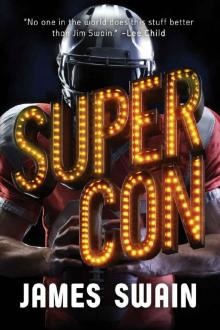 Super Con
Super Con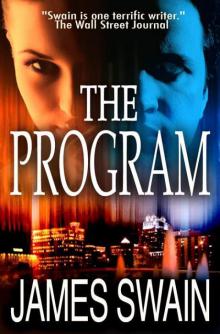 The Program
The Program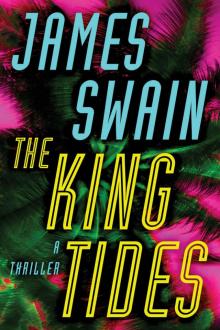 The King Tides (Lancaster & Daniels Book 1)
The King Tides (Lancaster & Daniels Book 1)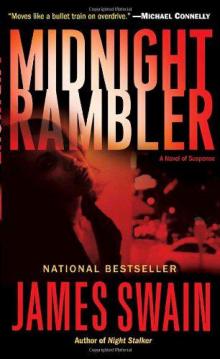 Midnight Rambler
Midnight Rambler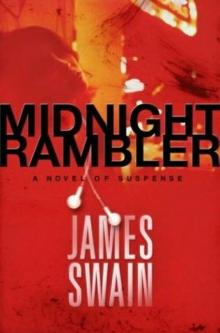 Midnight Rambler jc-1
Midnight Rambler jc-1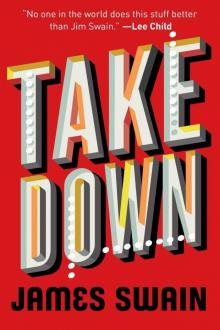 Take Down
Take Down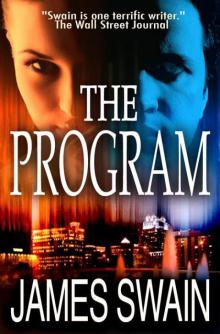 The Program (Jack Carpenter series)
The Program (Jack Carpenter series)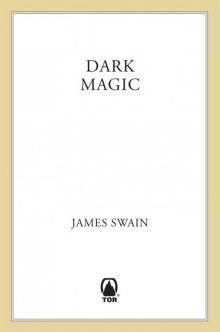 Dark Magic
Dark Magic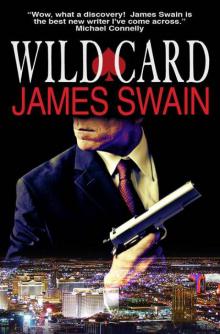 Wild Card (Tony Valentine Series)
Wild Card (Tony Valentine Series)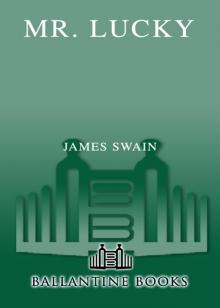 Mr. Lucky
Mr. Lucky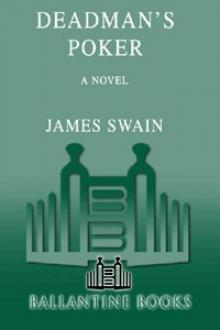 Deadman's Poker: A Novel (Tony Valentine)
Deadman's Poker: A Novel (Tony Valentine)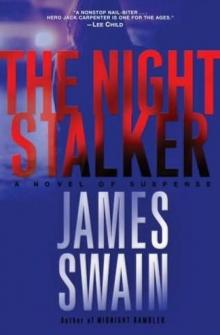 The Night Stalker jc-2
The Night Stalker jc-2 Loaded Dice tv-4
Loaded Dice tv-4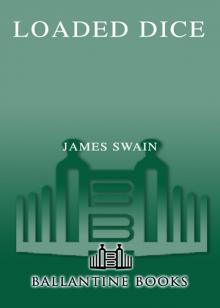 Loaded Dice
Loaded Dice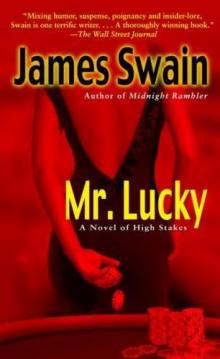 Mr. Lucky tv-5
Mr. Lucky tv-5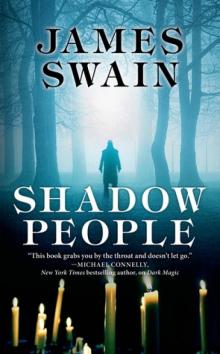 Shadow People
Shadow People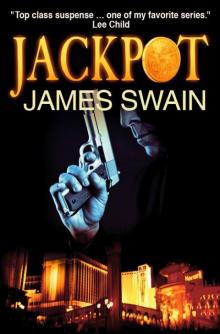 Jackpot tv-8
Jackpot tv-8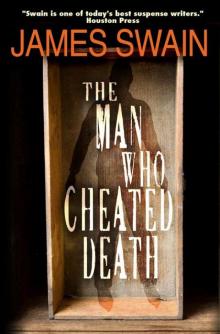 The Man Who Cheated Death (Vincent Hardare)
The Man Who Cheated Death (Vincent Hardare)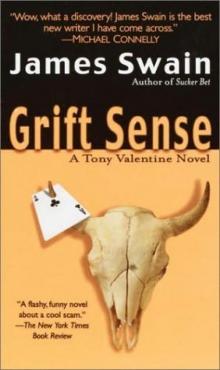 Gift sense tv-1
Gift sense tv-1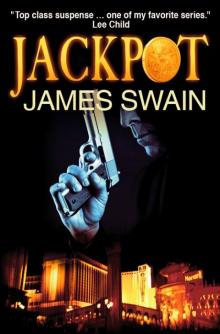 Jackpot (Tony Valentine series)
Jackpot (Tony Valentine series)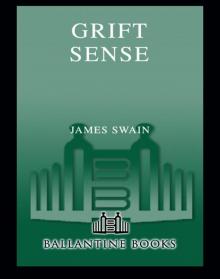 Grift Sense
Grift Sense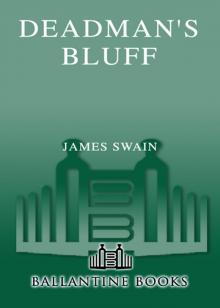 Deadman's Bluff
Deadman's Bluff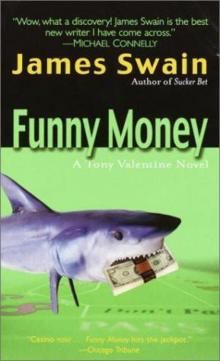 Funny Money tv-2
Funny Money tv-2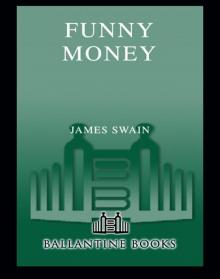 Funny Money
Funny Money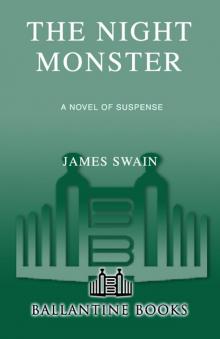 The Night Monster
The Night Monster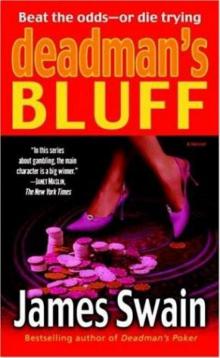 Deadman's Bluff tv-7
Deadman's Bluff tv-7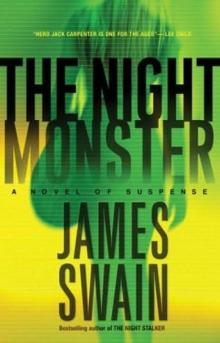 The Night Monster jc-3
The Night Monster jc-3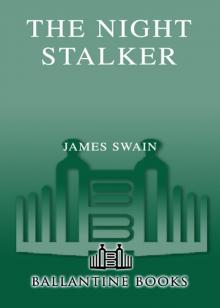 The Night Stalker
The Night Stalker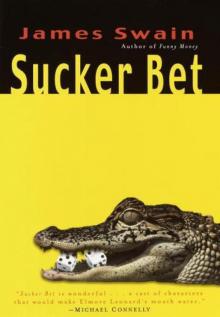 Sucker Bet tv-3
Sucker Bet tv-3